Reimagining how we think about disability with Hilary Pennington and Dessa Cosma

Transcript
HILARY PENNINGTON: Hi and welcome. Thanks for joining us for the first conversation in the live “On What Matters” series. I’m Hilary Pennington, executive vice president of the Ford Foundation. I use she/her pronouns. I’m a middle-aged white woman with very short hair, blonde hair, in a red dress. I’m sitting in a brown chair, in front of a white wall, and I’m thrilled to welcome my guest today: Dessa Cosma, who is a powerful disability inclusion and justice activist. Dessa, welcome to you.
DESSA COSMA: Thank you. It’s so nice to be here. My name is Dessa. I use she/her pronouns. I’m a white woman in my late 30s, with long blonde hair, wearing a multicolored top and sitting in front of a fireplace in my living room here in Detroit.
HILARY PENNINGTON: Thank you. We are going to start off with a short video that can just share a little bit more about the work you do.
[Dessa Cosma, a white woman wearing a denim shirt and blue jeans, arrives for an interview in an airy industrial studio. She is a little person and is using a wheelchair.]
DESSA IN VIDEO: For the last 15 years, I’ve worked in social justice. Working on economic justice and racial justice and women’s rights, I started feeling lonely in those spaces. There was this wide array of communities being represented and issues being represented, but not disability.
[On-screen graphic: “Economic justice and disability”]
DESSA IN VIDEO: My name is Dessa Cosma. People with disabilities are some of the most impoverished people in the United States. We typically live below the poverty line, and because of lack of access to education and jobs, we will remain there unless we do something about it. And so to work on anti-poverty or economic justice without a focus, at least in some way, on disability means that you’re leaving out the most marginalized people in that marginalized category. If we are going to help people with disabilities get out of poverty, and if we’re serious about ending poverty, we have to pay specific attention to people with disabilities and coming up with solutions particular to them. Because a lot of times, solutions put towards a community without attention to disability further marginalizes people with disabilities in the process. Everything that’s wrong with our society was a set of choices, and the beautiful thing about that is that we can make different choices. So there’s this huge opportunity to rebuild our world in a way that actually works for people, and not just a few people.
[On-screen graphic: “There is no justice without disability.”]
HILARY PENNINGTON: The disability community is a huge, very diverse community, and as you often say, it’s not possible to make progress against inequality without centering people with disabilities. Can you talk a little bit about what are some of the common misperceptions people have about people with disabilities in general and then, maybe a little bit more specifically, misperceptions that they have about the economic and financial status of people with disabilities?
DESSA COSMA: Sure. You know, I think one major misunderstanding about disability in our culture is that it tends to be thought of as over there, or not me, or not us. And often, what that does is makes people in positions of power or policy decision spaces not prioritize the very large and diverse community that we’re talking about. So in the United States, there’s more than 61 million Americans with disabilities and, of course, we’re part of every single group. We’re every language, race, class, gender identity, religion, etc., and so we’re actually everywhere, but we’re still largely invisible, and that’s in large part because of discrimination and stigma around disability. So the problems of ableism, which is the systemic oppression of people with disabilities, are actually not abstract to most families. They’re actually present in most families, but they’re not being named as ableism. We’re not lifting up disability in the way that we need to to actually solve problems. And the mainstream dominant narrative about disability is that we are deficient, that we’re not able to do things, that we are takers and needy, and there’s some really important pushback to that dominant narrative that’s needed. In part, all people are needy; all people need support. But we have set up our society in a way that works for non-disabled people better than it works for disabled people. And then we have criticized disabled people for needing help navigating that society. And so we really need a radical reorientation about how we think about disability and how we think about solving problems. I think in addition to the misconception about how large of a group we are, and this misconception about us as one-dimensional, needy, taking kind of people, is also a misconception that our needs are being met by our government. And the fact of the matter is, the benefits and social safety nets that have been set up to support disabled people have not kept up with the times and are insufficient to have us live in any sort of thriving capacity. So there’s this sense that because we have the Americans with Disabilities Act, everything is fine, we’re protected. Well, we have other civil rights legislation, too, and we know that people of color and women are also not on equal standing, even though they have protections as well.
HILARY PENNINGTON: Can you say a little bit more about the extra costs that are associated with disabilities, because I think that’s also something that is difficult for people to understand?
DESSA COSMA: Sure. There’s this kind of notion that there are pots of money for us to access. When we need to buy an accessible wheelchair, accessible van, for example, or put a ramp on our house, for example, there’s this perception that the government has funds for these things. And in most cases, that’s just absolutely not true. Recent data shows that a family with a disabled family member needs 28% more income just to have the same standard of living as a family without a disabled family member. And that’s because these things that we need to navigate our daily life cost money, and that money has to come out of our pocketbooks.
HILARY PENNINGTON: Yeah, that’s huge. And I think, you know, a related question to that, which is implicit in everything that you’ve just been saying, you know, gets to this issue of equity. Right? And I’m curious, you know, what would you say? What would it take for people with disabilities to move out of being at the bottom of every single index of quality of life? What would it take?
DESSA COSMA: Well, it’s going to take a lot of pushing back on this dominant narrative as people with disabilities as this kind of inevitable group of people who are doing poorly. So it’s very important that in all policy conversations, there’s a disability lens, all social movement decisions, that there’s a disability lens, and a priority for people, a priority on solutions for people with disabilities, specifically people with multiple marginalized identities. We know that people with disabilities as a group are not doing well. And we know that that’s compounded by other systems of oppression like racism and sexism.
HILARY PENNINGTON: Yeah, and I think also, it comes to the set of choices that we make as a society. Right, and the policies that we have. You know, so I’d love to hear you talk a little bit more about what you feel. When has there been real progress, and what has characterized that? You know, because that’s part of what it takes, I think, to start to change things.
DESSA COSMA: Absolutely. I think that there needs to be more people with disabilities in positions of leadership. There need to be more, there needs to be better disability focus in anything related to diversity, equity, and inclusion. There also needs to be a commitment to solving problems for people who are the most at the margins, and that is often people with disabilities. So you know, one thing I think about a lot in the work that I do is data. You know, data is a measure of what we care about, and who we care about. What we track is what we find important. And so often the case is that there’s not good data about people with disabilities, because people who are tracking things don’t prioritize disability and therefore aren’t tracking the data. And so when we then go to create interventions, and government officials say, “Hey, we need the data to back up what you’re saying,” we then have to remind them that they’re not collecting the data. So it kind of starts with understanding and valuing us as a group of people enough to even track what’s going on with us.
HILARY PENNINGTON: You know, and there’s another thing that I think is important too, and I’d love your thoughts on, which is the notion that if we built a system that worked for people with disabilities, it would actually be a system that worked better for everyone. You know, that there is something about living at the intersection of so many forms of challenge that actually means you have a better sense of how to design a system that would be equitable. Just thinking, it’s a little bit, I think, a common image many people would have is the ways that sidewalks get cut, you know, for wheelchairs that end up benefiting everybody.
DESSA COSMA: Yeah, I mean, if you’re a walking person, and you’ve used an elevator, or you’ve pushed a dolly up a ramp, you’re welcome. You know, I mean, those were solutions that were crafted to help people with disabilities, and they help everyone. And when we are thinking about making a world that’s workable, if we’re not making it workable for the people who are currently falling through the cracks, then what are we doing? Those of us who are the ones who typically fall through the cracks really know where the cracks are. And we probably have some really good ideas for filling those cracks so that no one falls through. This goes back to why it’s so important to have people with disabilities in positions of leadership and crafting policy solutions. And we need to, you know, fund the social safety net, and the programs that actually help lift us out of poverty. Currently, the social safety nets that are set up keep people with disabilities in poverty. There’s so much room for modernizing and fixing these safety nets so that people can actually live and thrive.
HILARY PENNINGTON: You know, I know one thing you think a lot about as an organizer is the fact that in addition to everything you’ve just said, people with disabilities have multiple identities—that’s not their only identity. And you know, a big word that would be used to describe that is that it requires an intersectional approach. It’s an intersectionality way of thinking about the world. Can you talk a little bit about how you use that insight in your organizing work?
DESSA COSMA: Of course. You know, when I think about an intersectional approach to disability organizing, I think of it in two ways. I mean, first of all, it’s just in line with our values to understand that people bring multiple identities and therefore unique, important, lived experiences to any situation. And so it’s in line with our values to honor all of that. It’s also far more strategic for us to understand that an intersectional approach is needed. When we think about the number of people with disabilities and the fact that we come from all communities on Earth, that provides tremendous organizing potential for us. There are allies to us in literally every community on Earth, because we’re part of those families. We’re part of those communities. And so with strong organizing, and an intersectional approach, I think that we can actually not only dismantle ableism but collectively dismantle racism and sexism, and trans- and homophobia as well. And so I think of us as this tremendous gift to social movement spaces, if we can show up and organize together, because we’re bringing insights that non-disabled people aren’t necessarily thinking about but that help solve problems that do impact everyone. And I think one example of that is in social justice movements, there’s really a burnout culture. We are up against huge problems. We are up against existential problems like climate change, and we’re tired and we’re stressed out. And we work really hard to make the world a more fair and equitable place. Disability justice principles bring something really important to that culture, which is the request to slow down a little bit, the request to actually build something that everyone can participate in. Not just people who can work 12 hours a day, not just people who can participate in this burnout culture. But when we do slow down, and we do create spaces where everyone can participate, we have more people pushing in the same direction, which will help us win.
HILARY PENNINGTON: Oh my gosh, and will help just reimagine: What could it be? What could it be like to live in a more equitable world for all of us? And I’d love it if you would talk a little bit about the particular kind of work you do in Detroit, the place-based nature of that work, and what lessons you feel it holds for people in other places more broadly.
DESSA COSMA: Well, I started Detroit Disability Power four years ago, because after working in social justice and in various parts of movement spaces for about 15 years, I realized that there just wasn’t enough attention to people with disabilities and our priorities. And that felt very out of line with everything I was hearing and being a part of in these movements that were supposed to lift up marginalized people. And so the work of Detroit Disability Power is both to organize disabled people on issues like housing and voting rights and transportation, etc., but also to really transform movement spaces to be more inclusive of disabled people, and also to have a disability justice analysis and strategy, no matter what issue the movement is working on, or whatever community that they’re focusing on—because, again, there’s always a disability justice lens, and there’s always disabled people in every community. And so this approach of organizing our community, and of transforming social justice movements, is really beginning to bear fruit. And so, you know, in a place like Detroit, there’s a lot of room for improving people’s quality of life. We’re a city that has been historically disinvested in because of racism. And there are more than 126,000 disabled residents of our city, most of whom are African American and most of whom are women. And so working across communities and across issues to actually improve people’s lives is something that is absolutely necessary, and I think absolutely possible. One of the main things that we have to fight against as disability activists is this notion that us doing poorly is inevitable. It’s not inevitable. It’s only because we devalue disabled people and don’t prioritize solving problems for disabled people.
HILARY PENNINGTON: Absolutely. Well, thank you for that. And we have so many questions coming in. We have time for probably about three of them, and then we’ll do our best to reach out and figure out how to address more of them over time. But the first question comes from Ayesha Edwin and it has to do with COVID: How has the pandemic shifted people’s understanding of disability? And what work remains to be done?
DESSA COSMA: Well, I have to start off answering that question with just a reminder of what was happening in the spring of 2020. The dominant narrative as we were in the United States being faced with this pandemic, the two main things that you could hear anytime you turned on the news was something like, “Calm down. It’s just the sick and the old people that are going to die.”
HILARY PENNINGTON: Yeah!
DESSA COSMA: Right, and that struck fear in the hearts of all of us, who are the sick and old people, right? We felt incredibly disposable in that moment. And still do, I think. I think the other thing that was very clear, as we were faced with this crisis as a country, was that medical care was going to be rationed in favor of younger, quote-unquote “healthier” people, which also let us know very clearly where we stood in terms of our expendability as a disability community. And so, of course, we started organizing immediately to save our own lives, and to save the lives of people in our communities and our families. Unfortunately, some of the things that the disability community has been saying for a long time, particularly around the dangers of congregate living and the lack of safety in places like nursing homes, really proved to be correct. We know that more than 25% of people who have died from COVID lived in nursing homes. And so we didn’t want to be right about this. But it’s another reason that listening to the concerns of people with disabilities is really important for not just disabled people, but for all families. And we saw across the last two-and-a-half years public health policies that did not prioritize disabled people. In fact, we saw a lot of public health policies that tried to get us, you know, quote-unquote “back to normal” quickly, and in a way that particularly disadvantaged and marginalized disabled people who could not afford to go back to work, because our health couldn’t handle the risk. And the data shows that people with disabilities are far more likely to contract and die from COVID than any other group. And with that data in mind, we have to ask: Are decision-makers creating policies with that reality at the forefront? And the answer is, so far, largely no.
HILARY PENNINGTON: So far largely no. And then how quickly we forget. But, you know, another thing that I think is complicated, obviously, about COVID is that it has added people to the disability community. If you think about people with long COVID, we’re just beginning to get a sense, I think, of what that long reach of need will be, which just underscores further, I think, the points you’ve been making.
DESSA COSMA: Absolutely. I mean, there’s tens of millions of new people in the disability community who I think we need to welcome with open arms and bring them into our organizing, but also, like, understand that they’re going to need a period of adjustment to becoming disabled. They probably are—I know they are—experiencing a real shock at how little support there is for people with disabilities in this country, this myth that we’re being taken care of, that our civil rights are protecting us. That myth is being shattered for tens of millions of people who are now disabled and struggling to navigate a system that literally was designed without disabled people in mind. So it hopefully will spur a big national conversation and some prioritization to the issues that we’ve been saying are our priorities all along. And so I think it’s a really important organizing moment, and a moment, to your point, not to forget what’s been happening the last two-and-a-half years, but to keep it in mind as we move forward.
HILARY PENNINGTON: Oh, we can only hope–and as you say, do the work and do the organizing. So our next question is from—forgive me if I’m mispronouncing any of these names—but our next question is from Sabina Basi, and it is: What are the best examples of collaboration between the youth and disability rights movements? And I guess maybe a different way to frame that, Dessa, might be also just to think about the different ways in which people from different generations experienced disability and enter the movements?
DESSA COSMA: Sure, I can speak to that. I mean, I think it’s very heartening to see how younger people think about disability. Far more young people today identify publicly as disabled and wear that label as proudly as any of their other identities. I’ve seen a huge shift in my lifetime with how comfortable people are—and even talking about disability, naming it and not thinking of it solely as a deficit. One of the things I really appreciate about millennials and people even younger than them is that there’s this sense of entitlement to be treated with respect, and I love that. I think it’s amazing when people say, “Hey, this is me, I’m disabled, I’m queer, I’m all these things that used to be a slur. But I’m owning it, and I deserve to be treated respectfully, because this is who I am.” That kind of confidence and that kind of expectation of being accepted for their full self is a beautiful transformation in our culture, I think. And when we do have a culture where people can be their whole selves, and bring all of their identities and lived experiences to the table, we’re going to create something, we’re going to create something together that’s really beautiful and really powerful, and will help us dismantle systems of oppression that have been plaguing us for centuries.
HILARY PENNINGTON: Yes, yes, I love that. And I’m going to move us on. I think we have time for one more question, and it is from Emily Blum. And it is a question that has to do with what we all know, which is that race and racism in this country mean that Black and Brown people in general and those with disabilities face much, much greater systemic barriers as a result of systemic choices that society has made. What do you think are the kinds of interventions that we have to make in order to decrease the poverty rate among Black and Brown people with disabilities?
DESSA COSMA: So, first of all, we just need to make sure that in any decision-making place, we are reminded, we are remembering that systems of oppression compound for people at the intersections of those systems. So we know that people with disabilities in general earn 74 cents on the dollar of our non-disabled peers. African Americans with disabilities earn only 68 cents on the dollar of their non-disabled white peers. Latino workers earn only 67 cents on the dollar. So these compounding systems of oppression have real, tangible outcomes and impact people’s quality of life. So that’s the first thing, is always remembering those intersections. Also, it’s then crafting policy solutions that prioritize meeting the needs of the people at those intersections. So if we’re crafting policy solutions that address the needs of a disabled woman of color, we are helping everyone else out as well, and we’re actually getting closer to the root of the problem. And, you know, there’s some important legislation right now that’s happening. Some of them are working to modernize the social safety net programs that were designed for people with disabilities. So for example, right now, someone living on SSI, which is Supplemental Security Income—it’s for low-income disabled people—people living on SSI only get $841 a month to live on. This is not even having those people live at the poverty line, it’s actually having people live below the poverty line. This is unconscionable, because they’re stuck there. There’s also asset limits. So an individual on SSI can only have $2,000 in assets before they start having their benefits reduced or lost altogether. So there’s no ability at all or incentive for people to save, to increase how much they’re working, because it’s not worth it. People can’t afford to lose those benefits. And so if we’re interested in, you know, if we’re interested in closing the disparities for people with disabilities, particularly people with disabilities of color, we have to start actually funding the programs that help people get out of poverty, as opposed to creating a second-tier, second-class system where disabled people are stuck in poverty.
HILARY PENNINGTON: Yes, and as you say, deliberately kept there, so rather than a system of opportunity and lifting up a system that keeps people back, keeps people down. Dessa, I just want to thank you so much, not only for this conversation, which has been amazing, but for the work you do, and your vision and your leadership, just everything you do all the time. I know it is challenging, and it can be exhausting. And I just I thank you so much for making time to share your thinking and your wisdom and your insights with this broad audience. And I want to thank everyone who’s joined us and listened today and to remind you that this is the first in a series and there will be more conversations with other social justice leaders from across the world, working on a wide range of issues. Thank you so much.
Accessibility Statement
- All videos produced by the Ford Foundation since 2020 include captions and downloadable transcripts. For videos where visuals require additional understanding, we offer audio-described versions.
- We are continuing to make videos produced prior to 2020 accessible.
- Videos from third-party sources (those not produced by the Ford Foundation) may not have captions, accessible transcripts, or audio descriptions.
- To improve accessibility beyond our site, we’ve created a free video accessibility WordPress plug-in.
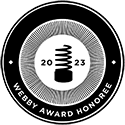
Welcome to “On What Matters,” a conversation series between our executive vice president Hilary Pennington and social justice leaders on the frontlines of change.
This episode features Dessa Cosma, founding director of Detroit Disability Power and seasoned social justice advocate.
Dessa talks with Hilary about the importance of using intersectional strategies to fight for disability justice, how to lift people with disabilities from the bottom of every quality-of-life index, and how we all need a “radical reorientation about how we think about disability.”
Learn more about our work on disability justice and inclusion at: fordfoundation.org/news-and-stories/big-ideas/there-is-no-justice-without-disability/
And more about Detroit Disability Power at: detroitdisabilitypower.org
Other videos in this series
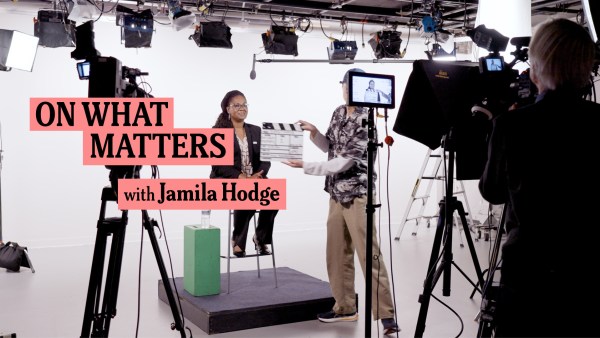
Advancing Community-Based Violence Intervention With Jamila Hodge and Sarita Gupta
Jamila Hodge of Equal Justice USA and Sarita Gupta of the Ford Foundation talk about community-based violence intervention and the importance of promoting a trauma-informed public health response to violence. Jamila explains how, if we want to address institutional racism, we must address the root causes of violence and center those most impacted.
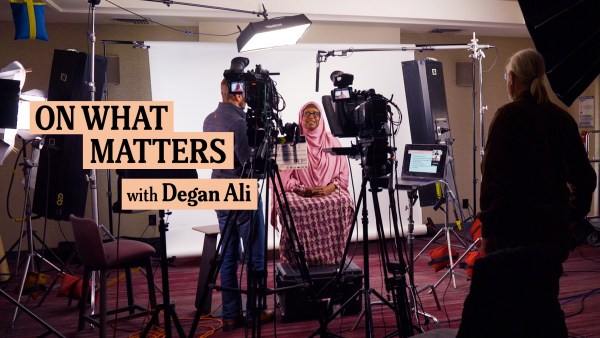
Decolonizing Humanitarian Aid With Degan Ali and Martín Abregú
Degan Ali and Martín Abregú talk about shifting to locally led development and decolonizing aid. Degan shares why we must rethink current structures of providing aid and have local civic society organizations play a stronger and more strategic role in global policy debates.
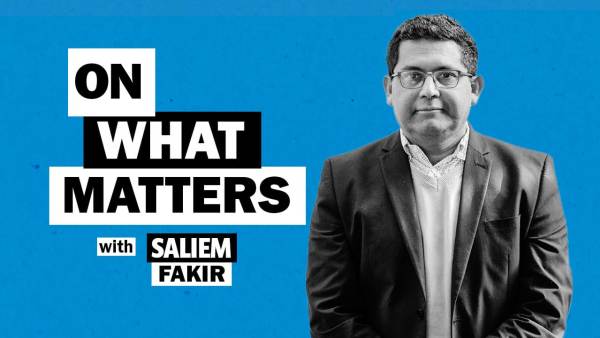
Working Towards a Truly Just Energy Transition with Hilary Pennington and Saliem Fakir
Saliem Fakir, the founder and executive director of the African Climate Foundation, the first grantmaking foundation in Africa focused on furthering solutions for sustainable climate development, joins Hilary Pennington to discuss the urgent need to address climate change and South Africa’s promising Just Energy Transition Partnership.
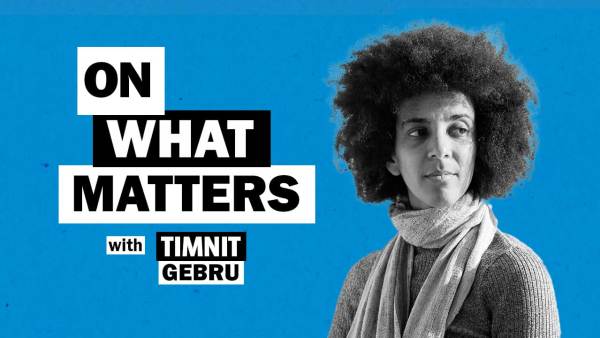
Making AI systems more just with Hilary Pennington and Dr. Timnit Gebru
Dr. Timnit Gebru, founder and executive director of the Distributed Artificial Intelligence Research Institute (DAIR), joins Hilary Pennington to discuss how an inclusive and collaborative approach to creating AI systems can address the uneven benefits and harmful impacts of technology on society.
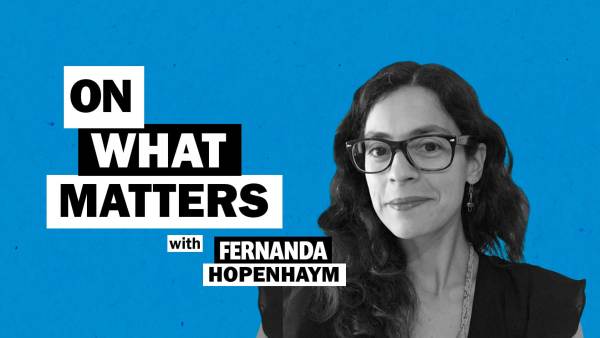
Holding corporations accountable with Hilary Pennington and Fernanda Hopenhaym
Fernanda Hopenhaym is the co-executive director of the Project on Organizing, Development, Education, and Research (PODER), a nonprofit in Latin America that pushes for corporate accountability for human rights and environmental abuses. Fernanda and Hilary discuss how to keep businesses ethical and transparent by using feminist and human rights organizing strategies.
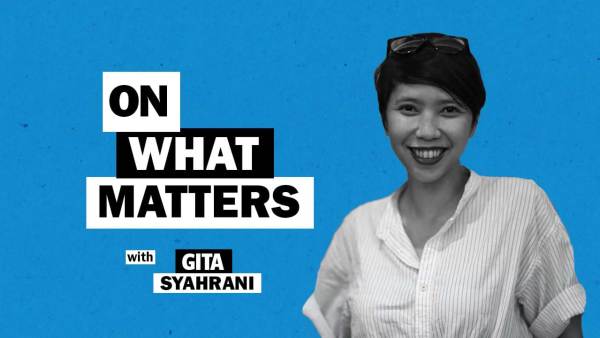
Saving forests while eradicating poverty with Hilary Pennington and Gita Syahrani
Hilary Pennington talks with Gita Syahrani about how engaging Indigenous and local communities in sustainability efforts can lead to greater economic mobility for them. Her work shows how civic engagement at the district level can have global impact.
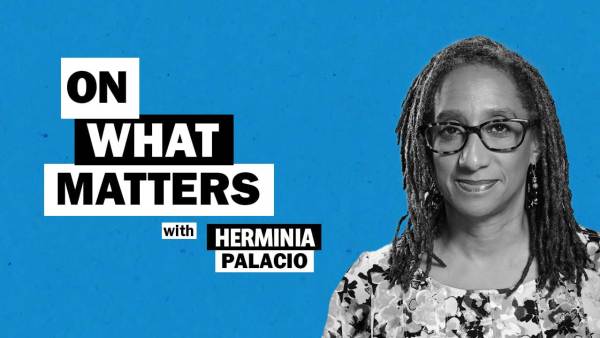
The future of reproductive justice with Hilary Pennington and Dr. Herminia Palacio
Hilary Pennington and Dr. Herminia Palacio discuss this moment in the reproductive justice movement, how different communities are impacted, and what the United States can learn from countries that have won gender and reproductive health victories.
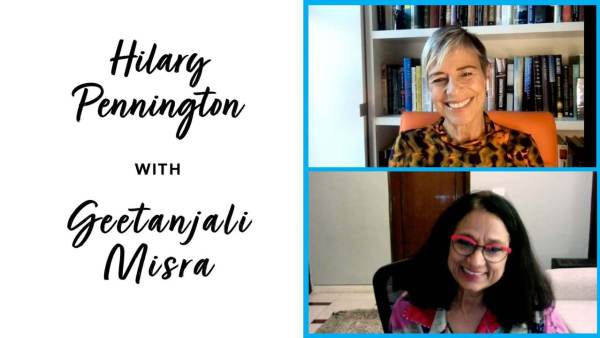
The future of feminism: Hilary Pennington with Geetanjali Misra
Geetanjali Misra has bore witness to the evolution of feminism both on the ground in the U.S. and India and in her work as an activist. Seeing patterns change and movements shift, she speaks about the importance of intersectionality in building a more inclusive feminist future.
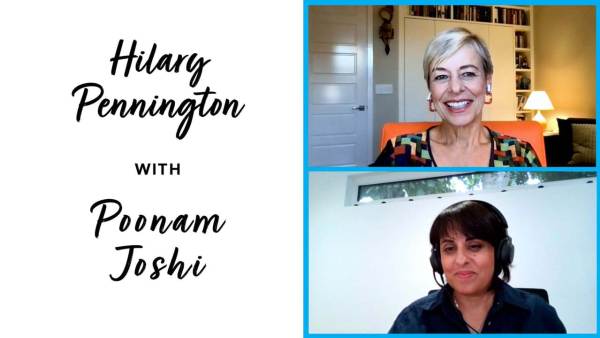
COVID’s impact on civic space: Hilary Pennington with Poonam Joshi
Civic space is essential for democracy. It allows people to participate in society and communicate freely and without discrimination. But, according to Poonam Joshi, director of Funders’ Initiative for Civil Society director, there are threats that need to be addressed before we solidify the civil society we want in the future.
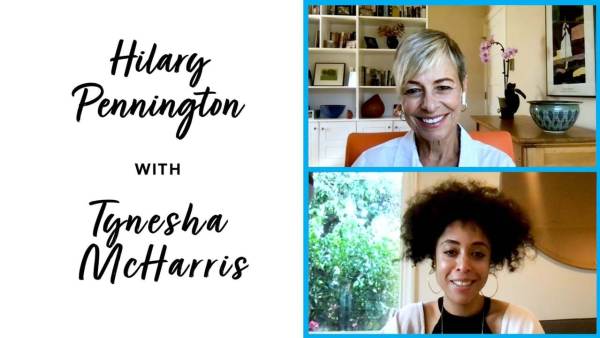
Funding Black feminism: Hilary Pennington with Tynesha McHarris
Black feminist movements are advancing social justice globally. Tynesha Harris, one of the founders of the Black Feminist Fund, aims to channel more support to movement leaders and create a model of true solidarity. Racial, gender, and class injustice need an intersectional approach that acknowledges the inherent value of Black women.

Philanthropy and environmental justice: Hilary Pennington with Laura García
When it comes to climate change, time is running out. But communities all over the world are working on solutions, and philanthropy needs to center their ideas and perspectives to win this fight. Laura Garcia, CEO of GlobalGreen Grants Fund, shares how funding grassroots movements can address challenges at the intersection of social and environmental justice.
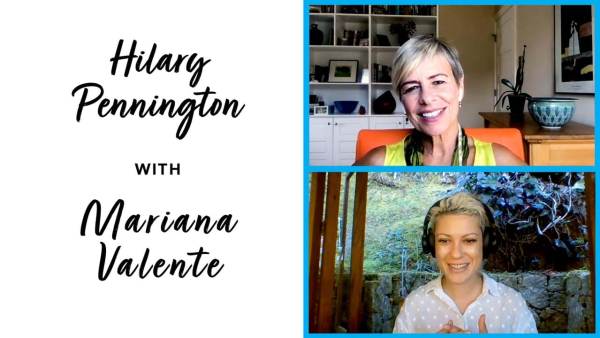
Technology and gender: Hilary Pennington with Mariana Valente
The internet is a force for good, but it must be guided by fundamental human and privacy rights and offer social protection, said InternetLab director Mariana Valente. In this way, technology can advance equality and, with the right policies in place, be used as a tool for advocates to organize.
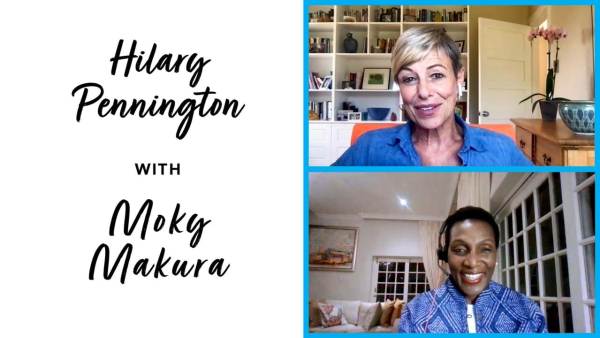
The power of storytelling: Hilary Pennington with Moky Makura
For too long, Africa has been defined in the media by stereotypes and oversimplified narratives. With Ford’s support, Africa No Filter is disrupting these narratives by empowering storytellers helping to create a nuanced, balanced view of the continent and an equitable, inclusive way of how to partner with it.
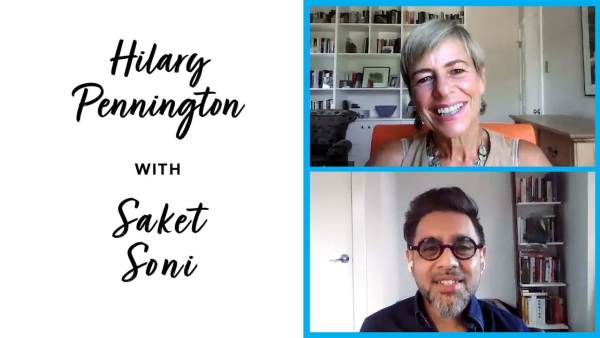
What essential workers need right now: Hilary Pennington with Saket Soni
Disasters present the opportunity to bring us together and give us the chance to reevaluate our priorities and ask what’s really important. Labor organizer Saket Soni sees COVID-19 as a prologue to other threats, like climate change. He says disaster responses need to focus on strengthening essential workers.
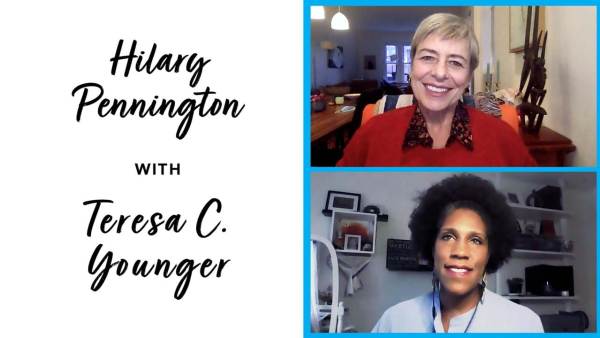
Philanthropy and Black women: Hilary Pennington with Teresa C. Younger
Social justice organizations led by women of color often receive less funding. Teresa C. Younger, CEO of the Ms. Foundation, explains why philanthropy needs to center women of color to address systemic racism and uplift women and girls of color for a more just future.
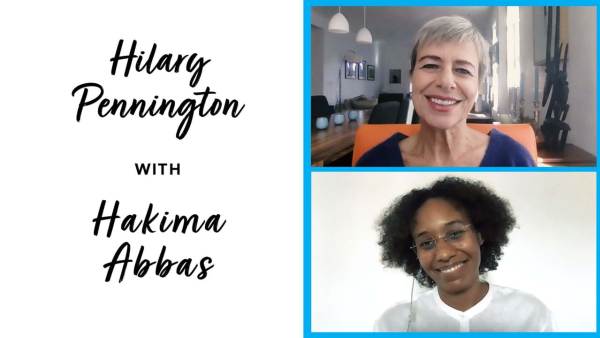
How young feminists are organizing: Hilary Pennington with Hakima Abbas
COVID-19 has impacted the way we work, but it also exacerbated gender inequality in the workplace. Hakima Abbas, of the Association for Women’s Rights in Development, believes we can prevent any further damage by including feminist leaders across the board in devising solutions.
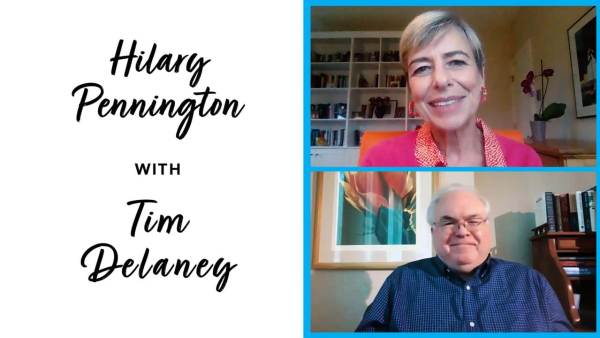
How nonprofits make an impact: Hilary Pennington with Tim Delaney
Over one million nonprofits exist in the United States, but Tim Delaney, the CEO of the National Council of Nonprofits, has an idea to make them even more impactful. To him, bringing social justice groups together can transform philanthropy for the benefit of all.
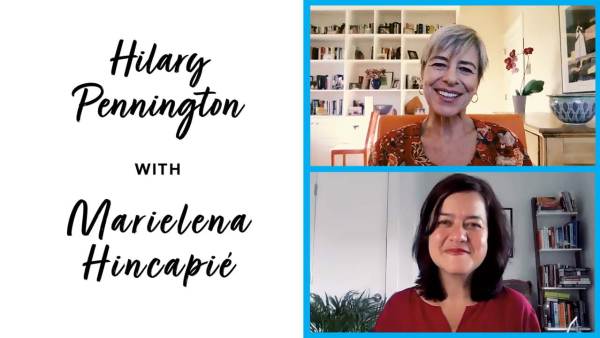
Immigrants are essential: Hilary Pennington with Marielena Hincapié
Immigration has been used as a weapon to divide the United States. The National Immigration Law Center aims to help the country understand that immigrants are not only important members of our communities and essential workers, but they are also valuable political constituencies needed to make American democracy work.
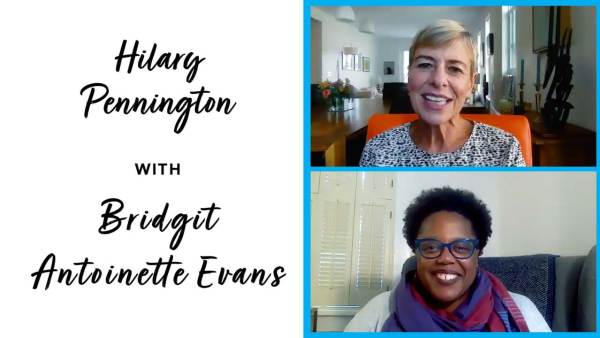
Social justice and pop culture: Hilary Pennington with Bridgit Antoinette Evans
Pop culture plays an important role in advancing social justice. Bridgit Evans of Pop Culture Collaborative produces cultural strategies that build on points of connection to ensure policy changes are not just symbolic. By finding commonalities through culture, she believes we can create a world where everyone feels they belong.
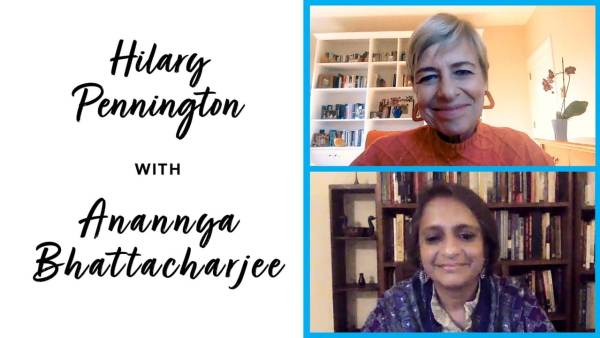
Global work needs to be local: Hilary Pennington with Anannya Bhattacharjee
While the labor movement has worked to improve the lives of garment factory workers globally, activist Anannya Bhattacharjee advocates that solutions need to start locally and come from the ground up to have a significant impact on workers’ lives.
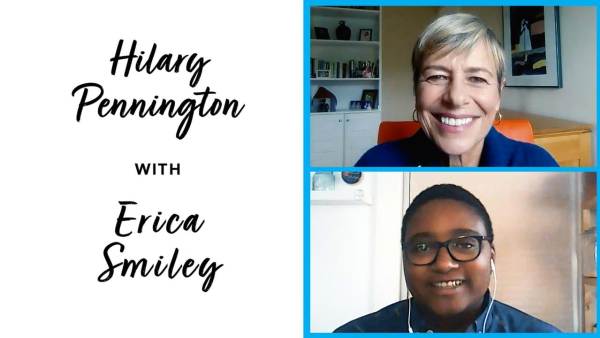
Essential workers are the economy: Hilary Pennington with Erica Smiley
The COVID-19 pandemic has dramatically changed the way we as a world work. As we face this inflection point, Erica Smiley, executive director of Jobs With Justice, believes people—especially essential workers—need to have the right to come together collectively to organize and negotiate their conditions to build a global economy that works for all.

The urgency of this social moment: Hilary Pennington with Eric Ward
We need to dismantle racism to make inclusive democracy truly possible. Eric Ward of Western States Center believes smaller movements can help support bigger waves of change. From creating cohorts of emerging leaders to encouraging small group interactions can help protect democracy and put an end to white supremacy.